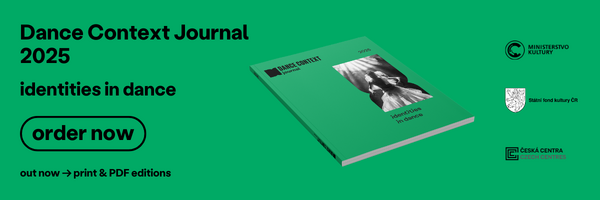Critics and Artists
As is seems, there’s been a growing discourse on the issue of dance criticism recently. What purpose does (or should) dance criticism serve? How subjective is it allowed to be and how objective can it be, in fact? How does it affect artists and who is responsible for assessing a writer’s competence? Et cetera. et cetera. The ongoing debate made me think of dance criticism in more general terms. As someone who is active in both dance and writing, I’ve come the following conclusion: if someone reacts to me, they acknowledge my existence. They offer me a mirror which gives a certain reflection, however distorted.
It is universally believed that there are two opposing camps – critics and artists. Surfing on the internet, I’ve come to believe critics feel the need to defend themselves, for one reason or another. I know very well that artists pretend to be completely uninterested in reviews and swear they never read them (which is a lie, for sure). The truth is that most dance artists are not able to form a grammatically correct sentence (as we know empirically from Facebook) and a critic often suffers from hypoglycemic shock after climbing up the stairs. Of course, not all of us can embody the Antique ideal of kalokaghatia. and it’s not even necessary. If I decide to go to see dance, I expect a breath-taking performance and I wish to be given an intense, complex and coherent experience. If I read a dance review, I want the author to convey the essence of the piece he or she has seen, and based on their erudition, to provide a critical insight. A reviewer should write good Czech, should possess adequate general knowledge and the ability to capture the essence of a work. His or her texts should be comprehensible for lay readers and satisfying for experts.
Neither critics nor artists can ever fully get rid of subjective perspectives. What’s the point of the discussion then? I think what really matters is professionality and competence. As we know, it’s super easy to disgrace someone else’s work. But in the end, critics as well as choreographers, directors and performers all lay themselves bare before the public. They all present their skills. They all create something ex nihilo.
Then there’s the utopic vision of a mutual consensus. The idea that we are all in the same boat and that we should all work as a team. Critics call for respect, artists prefer to be praised rather than criticised. In fact, the industry can thrive because of the incessant tension between critics and artists. Psychological pressure coming from ‘the opposing camp’ serves as motivation for taking responsibility for one’s work. Dancemakers cannot simply copy an acclaimed choreographer’s work, neither can they indulge in their seemingly ingenious creative work. Since there he is, an erudite reviewer who readily points out any “stealth” or misjudgement. A what about dance performers? Tired and frustrated by their financial situation, they must to do their very best on stage, under the watchful and uncompromising eye of a dance critic.
A critic following a dancer’s career notices any substantial fall is the quality of his or her dancing and writes about it (in an ideal world). Poor reviewers, indeed! They cannot take a nap during a performance, they must watch it carefully and, what’s more, write about it afterwards. Irreversibly. They risk being taken for complete idiots because they didn’t get the key message of a piece or misunderstood some essential things. Dance critics should also justify their conclusions, base their arguments on deep knowledge of the field and take into consideration the context of the local as well as international dance scene. So let’s get over our narrow-mindedness and accept this uncomfortable but exciting dynamics! Why should we always agree with each other? A critic, enjoying his finger sandwich at the première after party can put up with the a priori suspicious gaze of the director. A dance artist will survive if his or her work is scandalously underrated. Let’s give up the illusion that we should all be friends and that one day we can achieve a mutual consensus. We would be relieved, for sure, but it would do no good to the industry. And it’s the industry that matters most. Thanks God we are condemned to incessant endevour and never-ending discussion. If dance criticism is really needed is a silly question. Every art is reflected, and if not, it ceases to exist. As the philosopher Berkeley once said: “Esse est percipi” (to be is to be perceived) and – in accordance with the dialectic symmetry of this text - “Esse est percipere” (to be is to perceive). What we focus on will flourish - be it a lover, a garden or a cooking hobby. Critics as well as artists take themselves very seriously, that’s what happens in every industry. And I have a piece of advice for all of us: Let’s stop complaining and do our jobs, as well as we can!
More columns to be found HERE.



